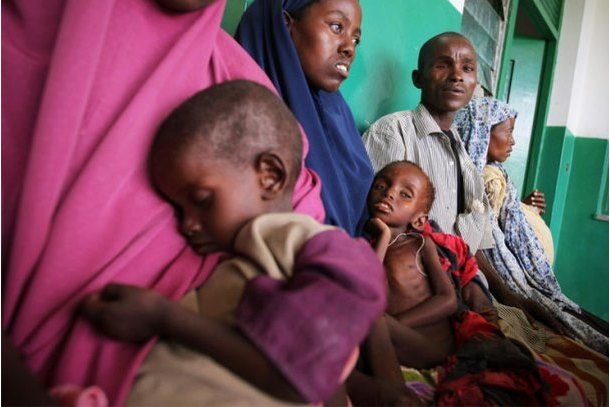U.S. think tank debunks WHO reports on environmental causes of child mortality

Summary
The report says market-driven economic growth, not “sustainable growth,” is key to improving public health.
The Washington D.C.-based Competitive Enterprise Institute (CEI) has released its analysis on a pair of reports by the World Health Organisation (WHO) published in March. The CEI analysis counters the WHO reports – which link the 1.7 million annual deaths of children under 5 years old to the environment – calling them misleading and irresponsible assertions that pollution poses greater health challenges in developing countries than the lack of economic growth and development.
The first WHO study, Inheriting a Sustainable World: Atlas on Children's Health and the Environment, provides an update on the latest factors that affect children's health, including "increasing urbanization, industrialization, globalization and climate change." The second report, Don’t Pollute My Future! The Impact of the Environment on Children’s Health, demonstrates the causes of the problems, including inadequate access to clean water and proper sanitation systems. Policy recommendations outlined in the reports include reducing the use of fossil fuels and certain toxic chemicals.
However, Angela Logomasini, CEI Senior Fellow and author of Polluted Logic Taints WHO Reports on Children’s Health says these supposed solutions will do more harm than good because “pollution” is not really the issue as much as the lack of economic development. The author says market-driven economic growth, rather than politically managed “sustainable growth,” is the key to improving public health.
“Recent WHO reports create an inaccurate and incomplete impression that ‘industrial pollution’ is at the core of children’s mortality rates in the developing world," says Logomasini. "By defining children’s health challenges as driven by environmental hazards, the WHO fails to address the real issue – poverty."
Extoling market-driven economic growth as the key to reducing poverty and addressing public health challenges, the author says economic growth has reduced poverty levels around the world, giving more people access to technologies as well as pesticides for increased agricultural productivity, and the control of pathogens that cause various diseases like malaria. The report also says energy from fossil fuels has major benefits for society.
"The WHO identifies urbanization, industrialization, and globalization as part of the problem, these three processes are necessary for economic development. Economic growth has helped millions around the globe rise out of poverty and address public health challenges," notes Logomasini.
Last month, CEI released a report, Economic Freedom is the Key to African Development, saying the Western “poverty industry” – comprising of government agencies and nongovernmental organizations (NGOs) – has failed to promote three key building blocks of prosperity: secure property rights, limited government, and affordable energy. The report proposes less taxes, fossil fuel and property rights for Africa to develop.
Logomasini identifies four major shortcomings of the WHO reports: the use of a broad and confusing definition of pollution; failure to distinguish between political and economic causes of pollution; ignoring the critical public health benefits associated with various modern technologies; and failure to acknowledge the importance of economic growth in making public health strides.
Concluding, Logomasini says: "To improve public health, policy makers should focus on promoting truly humanitarian pro-growth, free-market policies."
Related
-
Obesity accounts for four million deaths worldwide – WB report
The factors causing the obesity epidemic include ultra-processed and sugary foods, reduced physical activity and higher ...
-
Africa is now in serious danger of sleepwalking into a cancer crisis
Across Africa there remains a desperate need for cancer clinics offering women affordable screening and treatment.
-
Malaria To Zero: Access Bank's paradigm for anti-malaria
Strategies for eradicating malaria in Nigeria must focus on removing malaria parasites entirely from the population.










